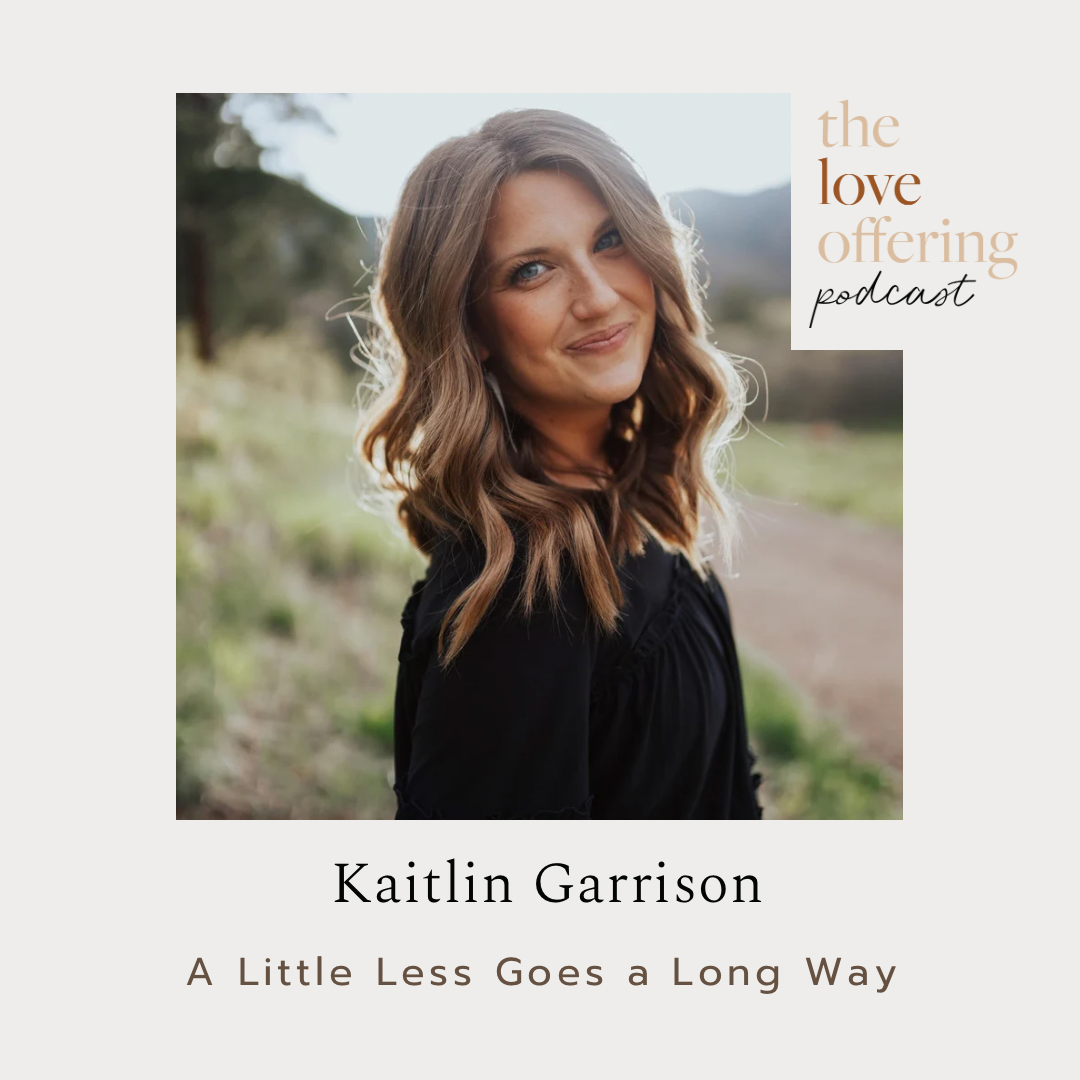“I am not enough.”
Embrace the power of these four words that can free you from a lifestyle of striving.
There are many areas in life where we strive to be enough: jobs, relationships, personal disciplines―the list goes on. In a culture that celebrates and encourages a work-to-earn mentality, it is no surprise that this same, formulaic pattern has bled into our faith. It is easy to become trapped in the exhausting cycle of trying to be good enough for God. But God is not after our well-polished performance but rather our full assurance in the sufficiency of his Son!
As a longtime church gal, Kaitlin Garrison knows the struggle of feeling caught in a perpetual lifestyle of trying to please God and others through outward behavior. In her book Sweet Relief and in today’s episode, Kaitlin tackles four prevalent false gospels that can keep us stuck in our cycles of striving. She reintroduces us to the simple gospel that banks on the grace of God rather than our own sufficiency. Join us to walk away confident that your standing with God is not centered on the good things you can do for him but on the finished work of Jesus who has already won it all on your behalf.
We aren’t perfect people. We can exhale when we don’t measure up. Because our hope is not in what we do but in the reality that God is enough.
Quotes:
“I was living like an acrobat for Jesus. I felt like I had to hustle for Jesus’ approval.”
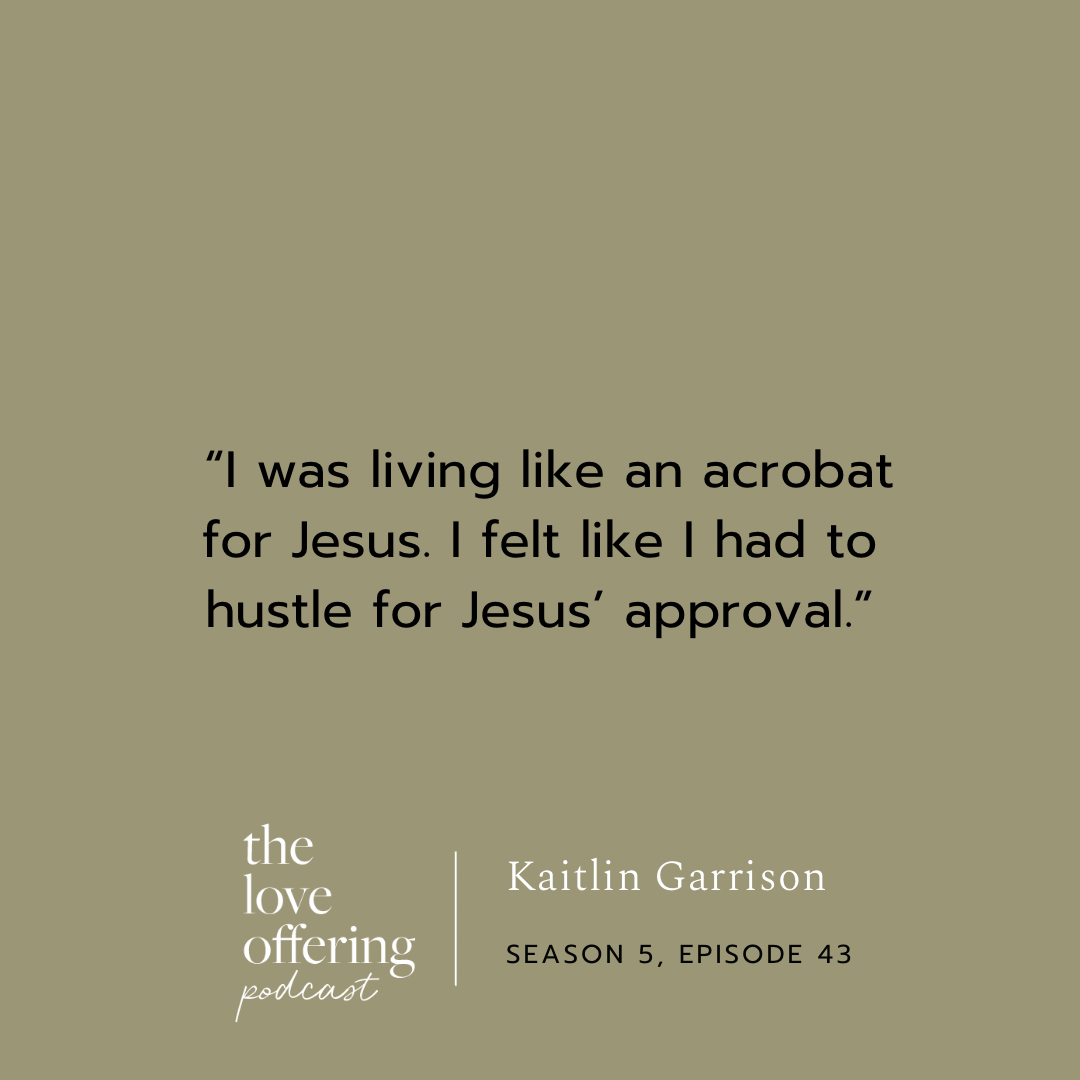
“We have intrinsic value. But we aren’t self-sufficient. We were designed to need God.”
“I am not enough. The Spirit of God is enough.”
“We love a righteousness we can measure.”
“The four false gospels: the DIY gospel, the so that gospel, the gospel of grit, and the you do you gospel.”
“You are exactly where you need to be.”
“We can turn our spiritual practices into a checklist for righteousness.”
“Your transformation is not all up to you.”
“Am I trying to earn something?”
“There is still a part of me that believes that what Jesus has done is not enough.”
“It’s not an option to live on yesterday’s manna.”
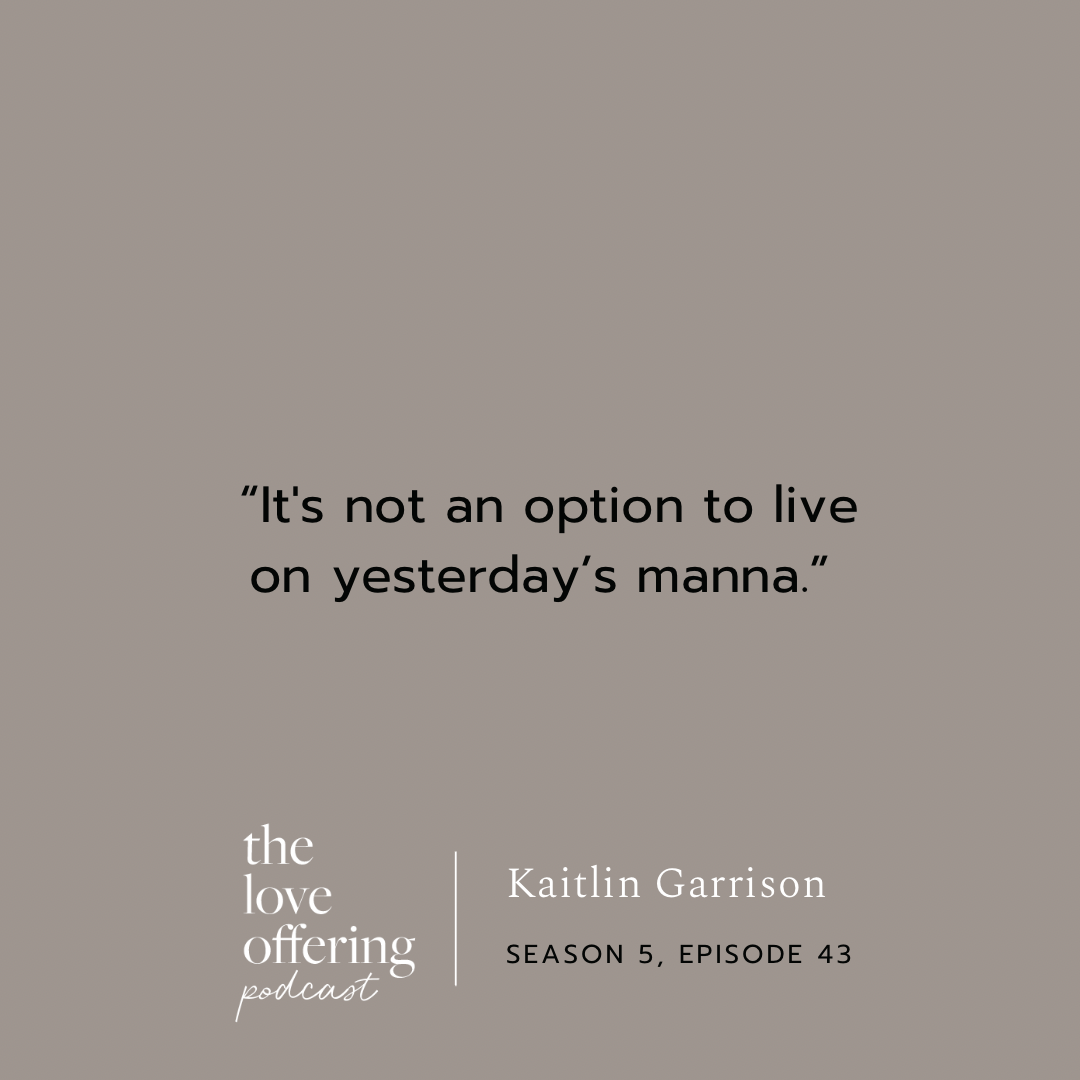
“It becomes less about duty but more about our delight.”
“Inadequacy doesn’t disqualify you. Inadequacies are actually what reminds us we are built for need.”
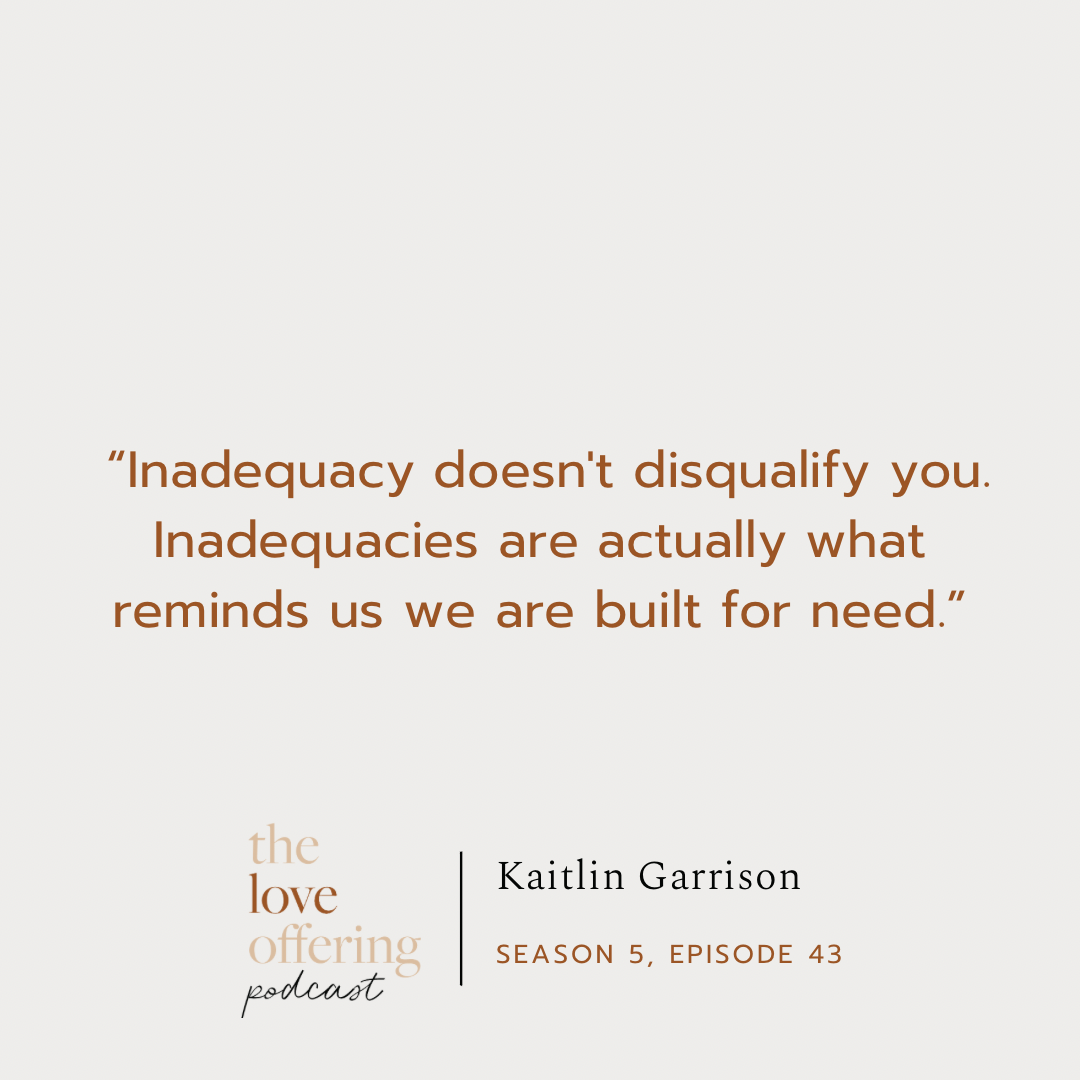
“It doesn’t seem natural to receive something so good without paying it back.”
“When you are tempted to do more, ask yourself why.”
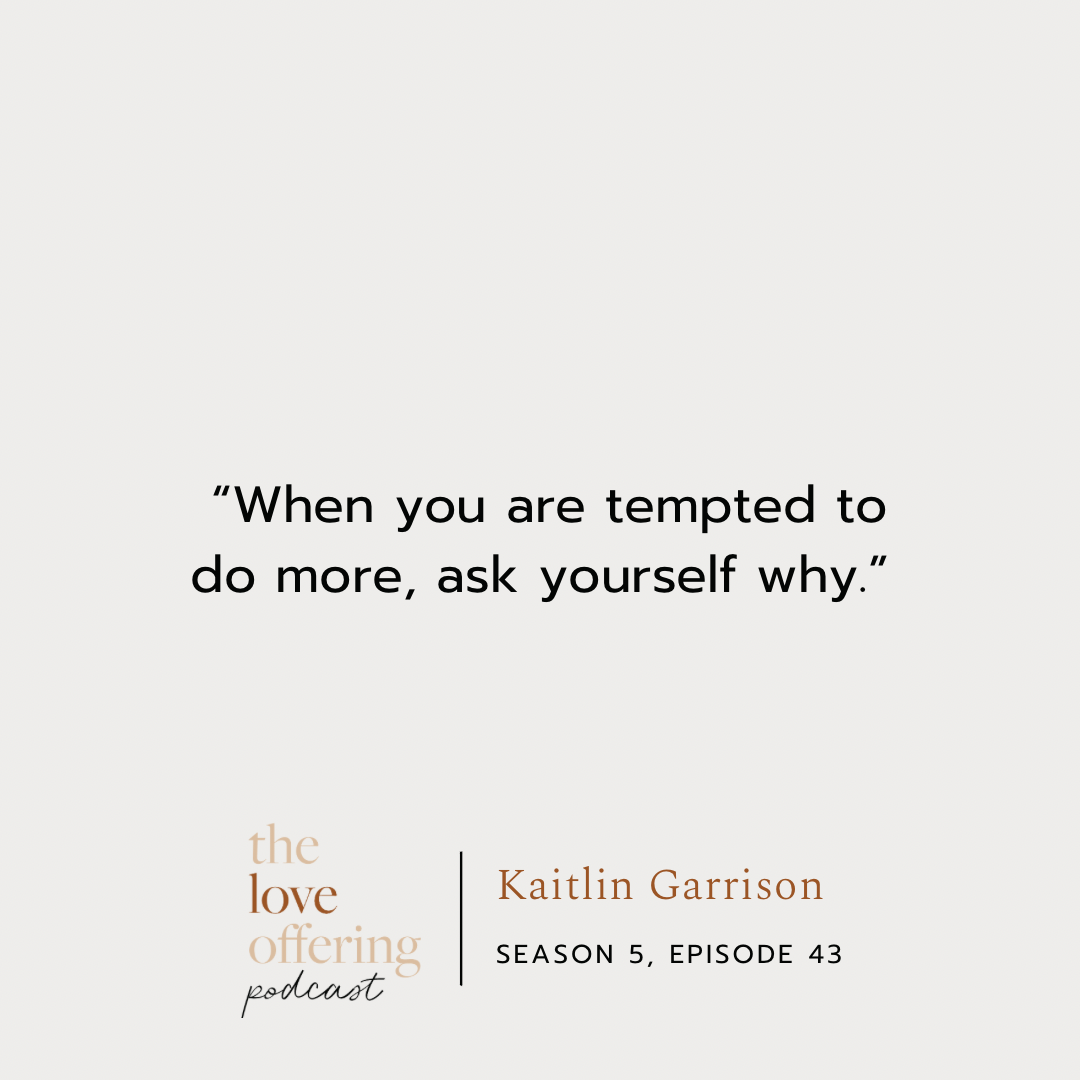
“It’s not about quantity but quality.”

